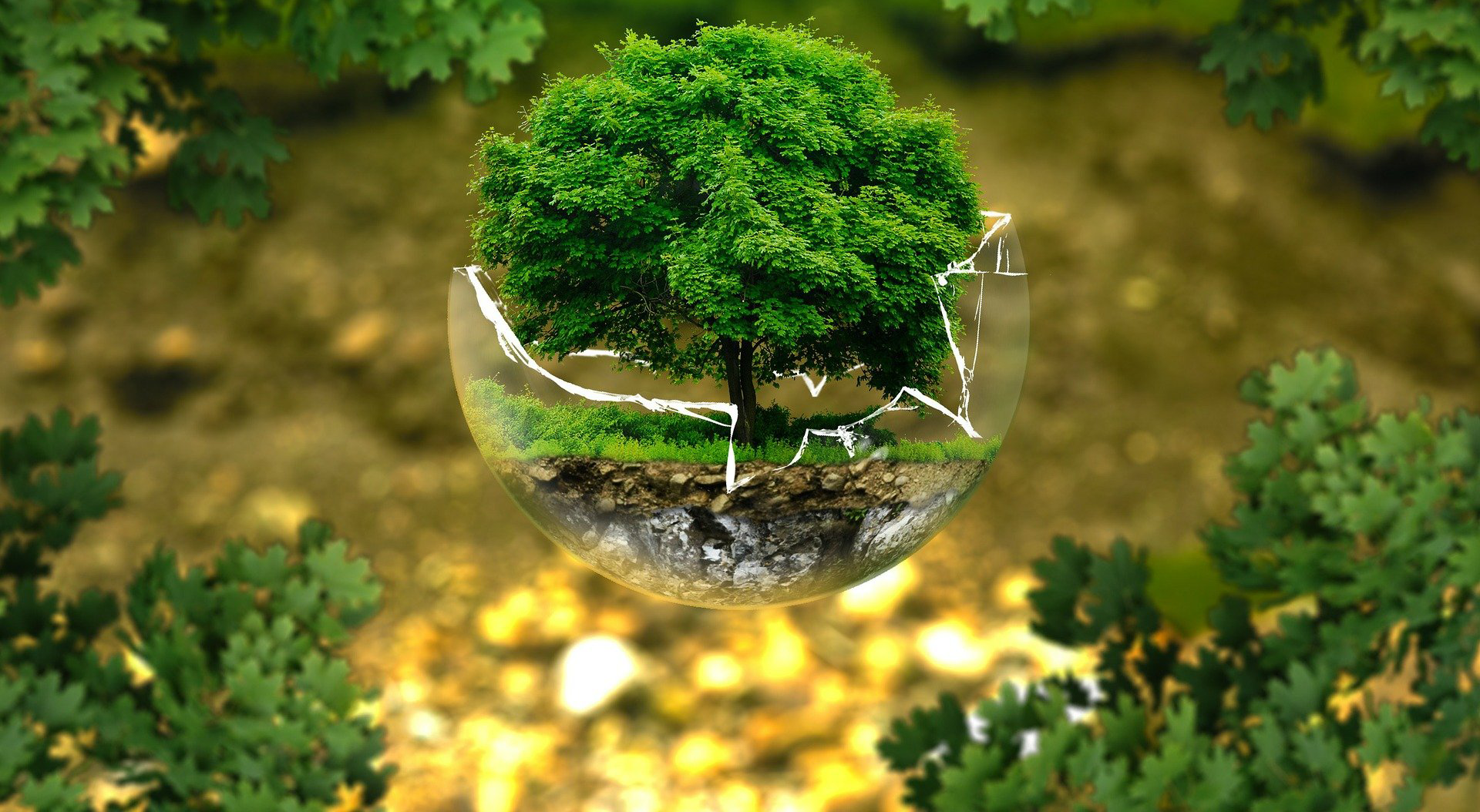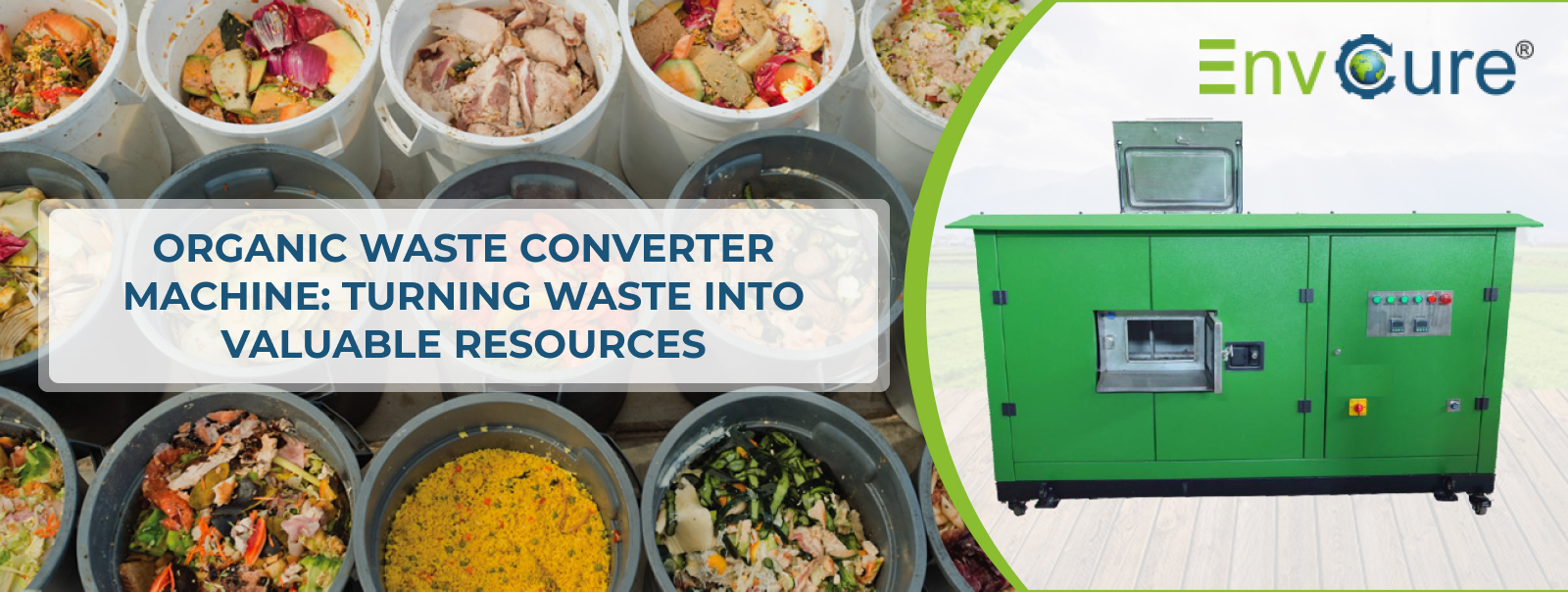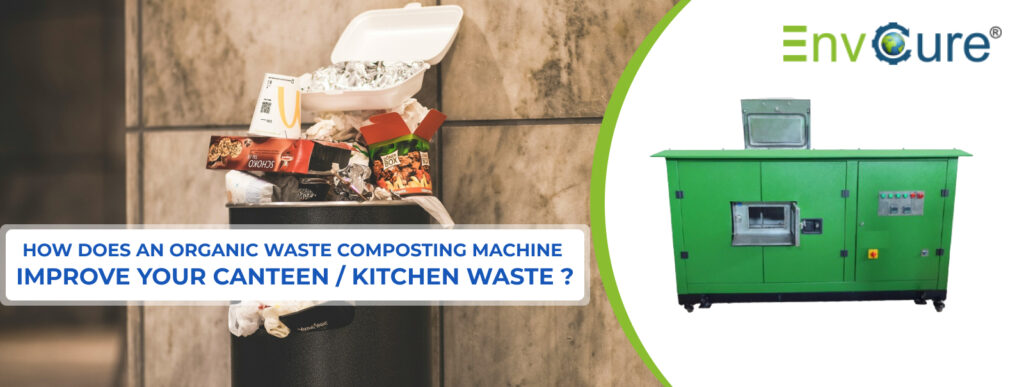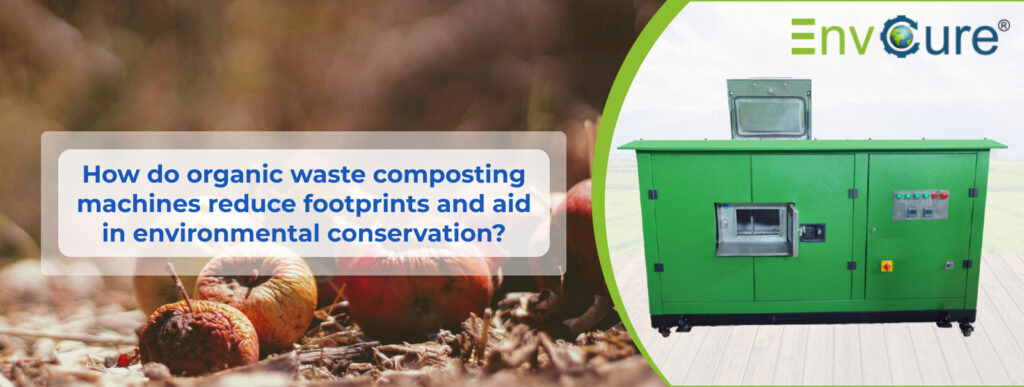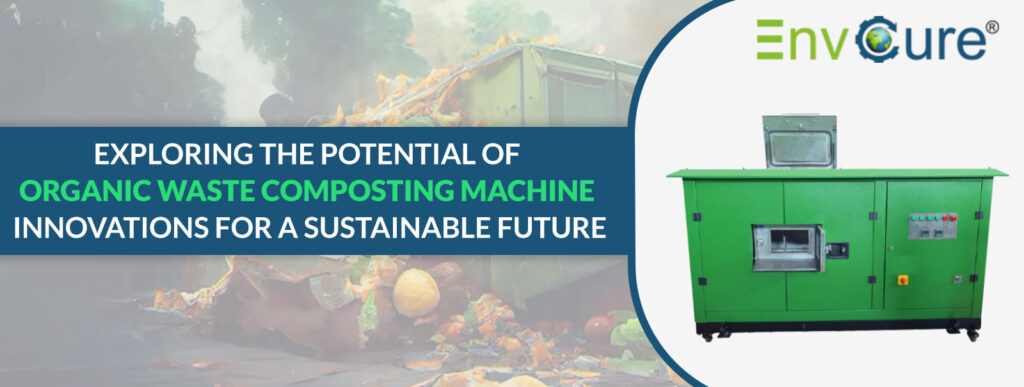With rising global waste production levels organic waste management has become a never-ending challenge for communities and industries alike. An organic waste converter machine changes waste into compost or other valuable byproducts as a means of a waste reduction strategy. In this article, we will examine what an organic waste converter machine does, how it functions and why it is essential to current waste management solutions.
What is an Organic Waste Converter?
An Organic Waste Converter (OWC) is a machine meant to change natural waste into compost or any other useful byproducts. This particular procedure helps you to manage natural waste sustainably by diverting it from landfills and also developing a nutrient rich solution which can be utilized for farming or maybe landscaping purposes. These Organic waste composting machines have become an integral in today’s waste management as a result of their efficiency and environmental advantages.
- Characteristics and Functionality: Organic waste converters are installed at the residential complexes, hospitals, educational institutions and agricultural facilities to help manage waste output whilst being sustainable for the community and environment.
- Water and Energy Efficient: Modern OWCs require little water and energy to operate while the composting process is optimized. Such efficiency supports green waste management practices.
- Automation and Control: Many modern models have automation features that regulate temperature, moisture & aeration to provide a consistent quality of compost.
- User-Friendly Design: OWC design often focuses on simplicity so that operators can manage waste processing with relatively little technical training.
Read more on how an Organic Waste Composting Machine turns food waste into compost in our full article here. How Does an Organic Waste Composting Machine Improve Your Canteen/Kitchen Waste?.
The Process of Organic Waste Conversion
Step #1. Waste Collection and Preparation
The process starts with organic waste – food scraps, garden trimmings and biodegradable materials – being collected. Proper sorting keeps non-organic materials out of the compost.
Step #2. Shredding and Size Reduction
The smaller pieces increase the surface area which stimulates microbial activity and decomposition. Some organic waste compost machines include inbuilt shredders for this step.
Step #3. Initial Decomposition
When reduced to manageable pieces, the waste goes into the composting chamber. Here controlled moisture, temperature and airflow conditions are maintained for microbial activity. The growing bacteria and fungi that break down the organic matter need a particular environment provided by the chamber.
Step #4. Microbial Breakdown and Heat Generation
Decomposition of wastes produces heat. This natural heating kills pathogens and weed seeds so the resulting compost may be safely used on gardens and farms. OWCs monitor and adjust conditions automatically for optimum breakdown.
Step #5. Curing and Final Processing
The material is left to cure after initial composting stages. This phase ripens the compost and equalizes the nutrients. The curing period ensures the compost is free of harmful microorganisms and has the right texture for use.
Step #6. Output and Utilization
The end product is a nutritious compost which may act as a soil conditioner. This compost helps improve soil structure, holds moisture and reduces chemical fertilizers – for more sustainable agriculture.
Benefits of an Organic Waste Converter
Implementing an Organic Waste Converter in Waste management systems brings many benefits beyond Waste volume reduction.
Environmental Benefits:
- Reduces Landfill Dependency: A primary benefit of an OWC is the diversion of organic waste from landfills. This is critical as decomposing organic material in landfills releases methane – a greenhouse gas. OWCs support climate change mitigation efforts by lowering these emissions through converting waste into compost.
- Promotes a Circular Economy: OWCs enable a closed loop system whereby waste is converted to useful compost for enriching soil-and-plant growth. This cycle makes waste a resource.
- Improves Soil Health: OWCs’ compost is full of nutrients; it improves soil structure, water holding capacity & fertility generally. This helps to reduce the requirements for synthetic fertilizers which may have a detrimental environmental impact.
Economic Benefits:
- Cost Savings: Enables businesses that use OWCs may pay less for waste disposal fees and pay less for commercial fertilizers. The initial investment into an organic waste compost machine often amortized over time because of these lowered operational costs.
- Revenue Opportunities: The quality compost produced can be sold to farmers, landscapers or gardening centers.
- Efficient Waste Management: OWCs helps facilities to manage comparatively large amounts of organic wastes on-site instead of depending heavily on outside disposal services.
Social Benefits:
- Community Engagement: Using OWCs might be part of community/ educational initiatives concerning waste reduction and sustainable practice. This can create environmental responsibility within employees and residents.
- Healthier Environments: OWCs manage waste on-site and reduce decomposing organic matter buildup – this is especially useful in highly populated areas or in institutions like hospitals and schools.
Organic Waste Converter Machines in Various Industries
- Hospitality and Food Service: Hotels, restaurants as well as catering services make a sizable amount of food waste. Incorporating an organic waste compost machine helps these businesses to manage waste sustainably. Compost leftover can be used as landscape around the property or donated to local community gardens. This cuts waste disposal costs and supports green initiatives on which the establishment can bask in reflected glory.
- Healthcare Facilities: Kitchen operations and patient care services create large amounts of organic waste in hospitals and other healthcare facilities. An OWC assists these facilities with waste management – reducing contamination risk and maintaining a clean facility. That’s especially important for health reasons and for reducing spread of bacteria and odors.
- Educational Institutions: Schools and universities can implement OWCs for cafeteria waste to demonstrate sustainability on campus. By offering composting programs in the curriculum students learn environmental stewardship and waste reduction. The resulting compost can be used for school gardens providing hands-on learning and sustainable campus landscaping.
- Agricultural Sector: Organic waste converters are very useful for producing compost for soil fertility and crop yields. Turning agricultural byproducts and also food scraps into compost means farmers use fewer chemical fertilizers.
- Municipal and Community Programs: Local governments and community programs can employ OWCs in larger waste management strategies that reduce landfill use and which encourage green initiatives. Such machines could be placed in public areas or community centers to process organic waste collectively; the resulting compost can be used for public parks and green areas.
In industries wanting to improve waste management practices, understanding what an industrial shredder machine does could prove to be helpful. Learn more about the role of shredder machines in our article to reduce manufacturing Waste.
Conclusion: Why EnvCure Technocrat LLP is the Right Choice
At EncCure Technocrat LLP, we offer premier sustainable waste management solutions with our industrial organic waste converter machines for a range of industries. With more than 1,500 organic waste composting machines installed worldwide, we continue playing an active role in moving forward waste management practices which benefit both people, communities, businesses and the planet.. Contact us now and see how our innovative solutions are able to turn your waste into an invaluable resource.
Frequently Asked Questions:
Q.1. What types of waste can be processed in an Organic Waste Converter?
Ans. Most organic waste, including fruit and vegetable scraps, garden clippings, and leftover food, can be processed. Avoid items like plastic, metal, glass, or hazardous materials.
Q.2. How long does it take to produce compost?
Ans. The conversion time varies but typically ranges from 24 hours to a week, depending on the machine and the type of waste.
Q.3. Is an Organic Waste Converter environmentally friendly?
Ans. Yes, it reduces landfill waste and greenhouse gases by converting organic waste into compost, promoting sustainable waste management.



